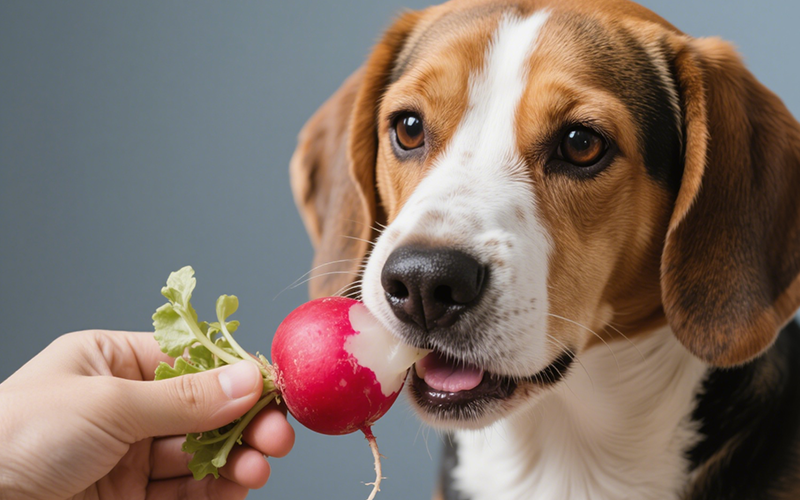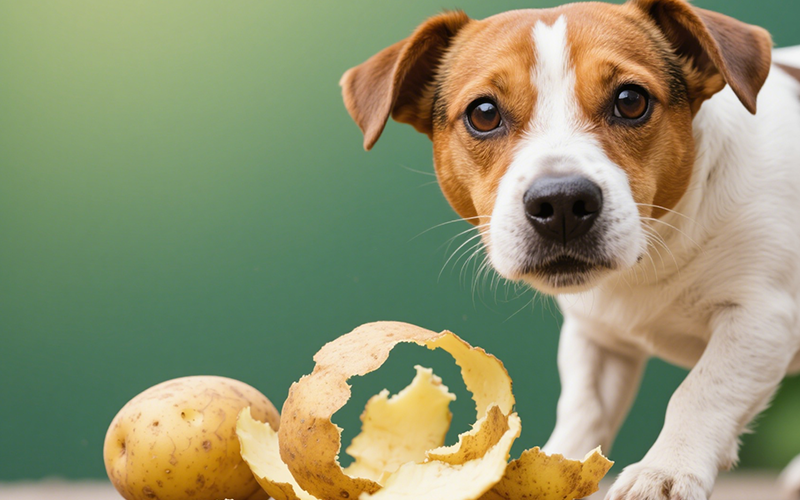Can Dogs Eat Raw Eggs? A Guide to Feeding Eggs to Your Dog Safely
- 24 Feb 2025 15:08
As a dog owner, you might be curious about whether certain human foods, like eggs, are safe for your furry friend. While eggs are a great source of nutrition for dogs, raw eggs come with certain risks that you should consider. So, the question is: Can dogs eat raw eggs? The short answer is yes, but it’s important to be aware of the potential risks and how to handle them.
In this article, we will explore the benefits and concerns of feeding raw eggs to dogs, how to safely serve eggs, and when you should avoid them altogether.

Nutritional Benefits of Eggs for Dogs
Eggs are an excellent source of protein, essential fatty acids, vitamins, and minerals that can benefit your dog’s health. They are rich in amino acids, which help support muscle development, skin health, and coat quality. The main nutritional benefits of eggs include:
High-Quality Protein
Eggs are a great source of high-quality protein, which is essential for your dog’s growth, muscle repair, and immune system support. Protein is a critical nutrient for all dogs, particularly active ones, puppies, and older dogs.Vitamins and Minerals
Eggs contain a variety of essential vitamins, such as Vitamin A, B vitamins (including B12 and riboflavin), and Vitamin D, which help support your dog’s metabolism, skin, vision, and immune system. They also provide iron and selenium, important minerals for overall health.Healthy Fats
The healthy fats found in eggs are important for maintaining a shiny coat and healthy skin in dogs. Fats also support energy levels and help with the absorption of fat-soluble vitamins like Vitamin A, D, E, and K.
Risks of Feeding Raw Eggs to Dogs
While eggs offer numerous health benefits, there are some potential risks to feeding raw eggs to your dog. The two main concerns are:
Salmonella Risk
One of the primary risks of feeding raw eggs to dogs is the potential for salmonella contamination. Salmonella bacteria can cause food poisoning, which can lead to vomiting, diarrhea, fever, and dehydration in your dog. Dogs with compromised immune systems or puppies are particularly vulnerable to this bacterial infection.Avidin and Biotin Deficiency
Raw egg whites contain a protein called avidin, which binds to biotin (a B vitamin) and can prevent its absorption in the body. While the amount of avidin in a single egg is not typically harmful, feeding your dog raw eggs in large quantities over time can lead to a biotin deficiency, which could affect your dog’s skin, coat, and overall health. Cooking the egg whites deactivates avidin, making the biotin available for absorption.
How to Safely Feed Eggs to Your Dog
If you want to feed your dog eggs, the safest way is to cook the eggs thoroughly to eliminate the risks associated with raw eggs. Here’s how to do it safely:
Cook the Eggs
Instead of feeding raw eggs, cooking the eggs (scrambled, boiled, or poached) ensures that harmful bacteria like salmonella are killed and that the avidin in the egg whites is deactivated. Cooking also provides a safer and more digestible form of protein.Avoid Adding Seasonings
If you’re cooking eggs for your dog, avoid adding salt, butter, or other seasonings, as these can be harmful or unnecessary for your dog’s diet. Simple, plain eggs are the best option for your pet.Moderation is Key
Eggs should be offered as an occasional treat and should not be a regular part of your dog’s diet. While eggs are nutritious, they should be given in moderation to avoid overfeeding and to maintain a balanced diet for your dog.Consult Your Vet
If you’re unsure about whether eggs are suitable for your dog or if they have any underlying health issues, it’s a good idea to consult your veterinarian. Some dogs may have food sensitivities or allergies, and your vet can guide you on the right portion size.
Alternatives to Raw Eggs: Safe Egg Options for Dogs
If you want to avoid the risks of raw eggs but still want to provide the nutritional benefits of eggs, there are safe options:
Boiled Eggs
Boiling eggs is one of the simplest and safest ways to serve eggs to your dog. You can peel the shell and cut the egg into small pieces for easier consumption.Scrambled Eggs
Scrambling eggs with just a tiny amount of water and no added seasonings is another safe way to feed eggs to your dog. Just ensure the eggs are fully cooked through.Poached Eggs
Poaching eggs without any added oil or seasoning is also a healthy option. Poached eggs retain most of their nutrients and are safe for dogs when served plain.
Signs of Digestive Issues in Dogs
If your dog has eaten raw eggs and shows any signs of digestive distress or food poisoning, it’s important to seek veterinary help. Symptoms to watch for include:
Vomiting
Diarrhea
Lethargy
Loss of appetite
Dehydration
If you notice any of these signs, contact your vet immediately.
Should You Use PettureX for Your Dog’s Health?
If you're unsure whether feeding eggs or any other food is safe for your dog, or if you need guidance on your dog’s diet, PettureX can help. PettureX offers 24/7 online consultations with pet health professionals who can provide advice on feeding, nutrition, and general health concerns for your pet.
Conclusion: Can Dogs Eat Raw Eggs?
In conclusion, raw eggs are not recommended for dogs due to the risks of salmonella contamination and potential biotin deficiency. While eggs can be a nutritious addition to your dog’s diet, it’s best to cook eggs thoroughly to eliminate these risks. You can offer cooked eggs as a healthy treat in moderation, but always avoid adding seasonings or oils that might be harmful to your dog.
If you’re ever uncertain about what foods are safe for your dog, or if you have questions about your dog’s health, don’t hesitate to reach out to a professional or use PettureX for 24/7 pet health consultations.
Related

Radish Bites for Your Buddy? A Vet-Reviewed Guide on Whether Dogs Can Eat Radishes
- 22 Apr 2025
Potato Peels for Pooches? Unpeeling the Risks and Facts for Dog Owners
- 22 Apr 2025
Crunchy Curiosity: Can Dogs Safely Snack on Pork Rinds? A Deep Dive
- 21 Apr 2025
Pomegranate Seeds and Pooches: A Deep Dive into Whether Dogs Can Safely Indulge
- 21 Apr 2025
Can Dogs Eat Peaches? Vet Explains Benefits, Cyanide Risks & Safe Serving
- 16 Apr 2025
Can Dogs Eat Mulberries? Vet Explains Safety, Benefits & Potential Risks
- 16 Apr 2025
Can Dogs Eat Mozzarella? Vet Explains the Cheesy Truth (Risks & Benefits)
- 16 Apr 2025
Can Dogs Eat Mango Skin? Vet Explains Why It's a Risky Chew!
- 16 Apr 2025
Can Dogs Eat Maple Syrup? The Sugary Truth & Why Vets Advise Against It
- 16 Apr 2025
Can Dogs Eat Mac n Cheese? Vet Explains Why This Comfort Food Is Unsafe!
- 16 Apr 2025
